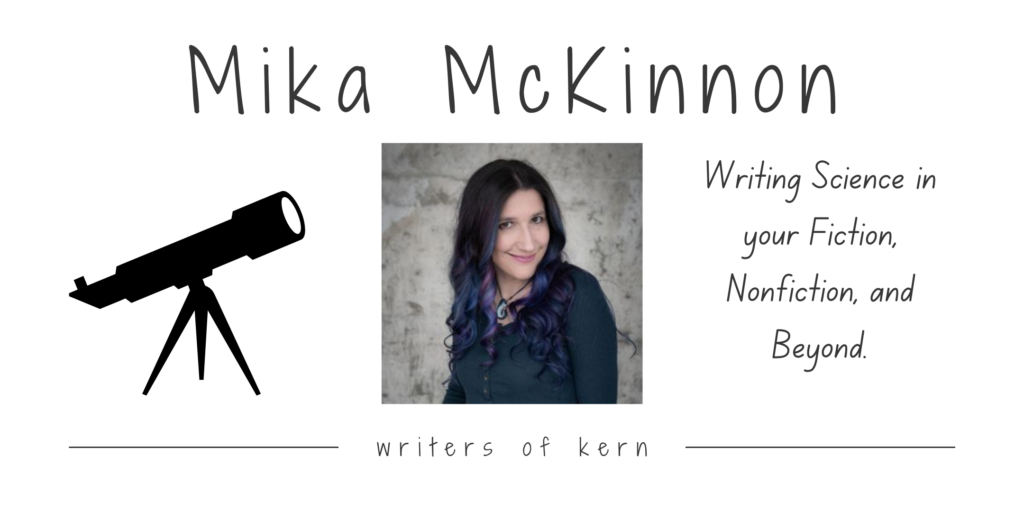Writing Science in your Fiction, Nonfiction, and Beyond
Have a science question? Is an earthquake shaking up the landscape in your fiction? Solar wind knocking out the satellites? Learn how to improve the science in your current work of fiction.
Applicable to all forms of fiction, genres, and nonfiction, from the murder mystery to the paranormal romance. Depicting more accurate science can elevate your story to the next level.
This workshop includes:
• Scientist for Fiction
• Writing science
• Utilizing your resources
Mika began her science communication efforts as a Master’s student at UBC, after answering a call from the producers of the television show Stargate: Atlantis for a physicist who could help with accurate scientific justifications for the show’s science fiction plots. After graduation, she pursued a career in science communication that included popular science writing and continuing her consulting role on the television shows Stargate: Atlantis and Stargate: Universe. More recently, McKinnon has consulted on Doomsday: 10 Ways the World Will End, No Tomorrow, Madam Secretary, and Star Trek: Discovery. In a profile with her alma mater, UCSB, she says that her interest in communication stemmed from the media’s misrepresentation of a major landslide in the Pacific Northwest.
She was a contributing editor for Gawker Media, providing coverage on popular science topics for io9 and later became a science writer for Gizmodo. Her bylines cover topics including space exploration, dinosaur discovery, the convergence of science and art, and disaster preparedness. Her writing is in publications including Wired UK, Smithsonian magazine, Ars Technica, and Astronomy.
She volunteers for the National Academy of Sciences Science & Entertainment Exchange, providing subject matter expertise to the entertainment industry for more accurate depictions of science in the media.
